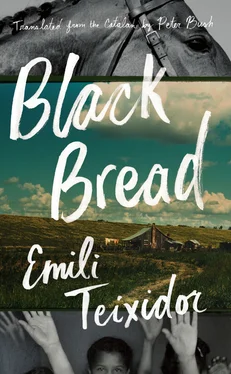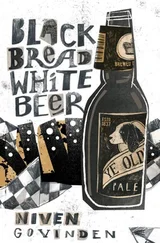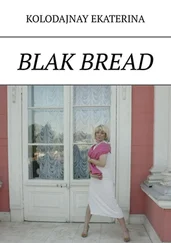Occasionally they let slip something more explicit: “You mean he won’t…?”
“Are you sure she…?”
“She won’t put up with him for very long, I know her too well. She’s not made for that.”
“She’s not like us two, that I do know…”
“We’ve been a couple of beasts of burden, that’s what we’ve been…”
“We’ve been two complete asses, let’s be clear about that!”
“Now, they won’t truck any nonsense, they…”
It was like a cobweb, and with patience you caught a detail, a fact, a name to help decipher their language of gestures, grimaces, exclamations, hints and half-words. As far as I was concerned, they always spoke about the same thing; just as once almost the only topic used to be my father’s illness and imprisonment, now conversations were all centred on Aunt Enriqueta’s lunacies and the unhappiness of Pere Màrtir, the boyfriend they preferred, even though they’d huff and puff and complain about the behaviour of the masters, Mr. and Mrs. Manubens, the upsets suffered by my mother’s two sisters, Aunt Felisa and her marriage of convenience to a widower—“She cried all night,” said my mother, “they spent their first night in Barcelona, at the Hotel Jardí, a cheap little hotel, don’t be under any illusions, no big spending, ’cause I reckon he’s so mean he even finds it a strain to give you the time of day, and she cried all night, the poor thing,” and Aunt Mariona, who lived in Barcelona and now missed country life, “The crazy dear says she sometimes runs away to the top of Tibidabo to see if she can catch sight of our woods, and tears come whenever I tell her about the village and farm,” and sometimes about France and the people in France.
“Mariona will tell me everything when I see her,” concluded Mother, as if she possessed an older sister’s right to clear up the chaos in the family. “I’ll keep an eye out to make sure this couple of innocents don’t go barking up another wrong tree.”
If the sun hadn’t set, they’d have gone talking for hours, because they never gave up, it beggared belief that what I thought to be such petty existences could generate such long debates, and I noted the regret in their gripes and reproaches, as if they were lamenting they’d not lived more, that they’d not dared open any closed doors, as if life had slipped through their hands when they still felt it beating in their hearts, as if work had wasted them away and they now had to console each other for the loss of the lives they had once led as girls.
That dusk Mother’s hugs were tighter than usual and she said nothing. I could sense she wanted to but the words wouldn’t come. Her eyes glistened but she didn’t cry and I steeled myself not to shed a tear. Aunt Ció clasped me to her and said: “Come on, there’s nothing to worry about. You’ll see each other all the time.”
Mother only said: “It’s what his father would have wanted.”
I made an effort not to look back when we went our different ways. Nevertheless, I wasn’t sure about my new role as an adult, as an orphan abandoned to his own devices, and knew I couldn’t let myself be swayed by nostalgia or melancholy. Growing up was all about that: breaking with the past and moving forward pitilessly, forcefully, and not looking back, as Quirze used to say, brutally if needs be, because that new world was harsh and only accepted the bravest, the most intelligent or wealthiest.
A few days later Mr. and Mrs. Manubens drove up in a black car. They greeted me with an “Are you ready to go now?” that stunned me, but then they rushed upstairs and went into a conclave with my uncle, aunt and grandmother and said nothing else to me. I was free for the whole day, and Cry-Baby and I ran to the threshing floor, the pond and hazel tree spinney, but we didn’t burrow into our little den because we were both rather apprehensive and weren’t sure what was going to become of us and we went straight to the wall around the heartsease garden and looked over at the meadow but nobody was there, perhaps it was too early or too late, though the green grass gleamed brightly, like a field of alfalfa that nobody has trampled over, and the trees’ shade was pointless because there were no sick boys protecting their heads or bellies and the stunted, dried-out elm tree of my naked young man seemed ugly and flaky without his body beside it, a solitary, old tree with cracked branches and a hollow trunk, practically leafless, a moribund tree of no use to anyone.
I felt as if I’d been stabbed in the chest, as if my heart was warning me I’d been infected with a sickness, a mortal infection. We stayed there a while, our heads looking over the wall, our eyes staring at the empty meadow as if we couldn’t come to terms with the fact that the sickly boys had abandoned us. It was the becalmed silence of a cemetery.
Cry-Baby said nothing, I was sure she was waiting for me to tire of that panorama and start our retreat. She always acted like an appendix to my desires. But I struggled to give up that vista, as if I could fill that desolate space with the memories and images I carried within me. I felt cheated, betrayed, as if the TB patients in the Saint Camillus infirmary had sworn an oath to dupe me. An act of infidelity. I’d never desired anything so vehemently as to gaze yet again at the naked youth lying in the shade from the elm tree. It was a new desire, like the rage I had discovered slumbering within me, a hazy, delicious desire, more languid and remote than any of the urgent desires I’d felt hitherto, a longing for something infinite and immeasurable, that swathed my whole body from the roots of the hairs on my head to my toes, and I was terrified I would lose it far from the contemplation of that pale, slender body, marked by a sinister fate that lent it urgency, an intensity healthy bodies didn’t possess. And a moment came when I felt a stab of pain that brought a bittersweet taste, like the handful of saffron Aunt Ció threw into the rice to tinge it yellow, or the mixture of quince and cream cheese that brought a delicious bitterness to the plate and left a dry, tart taste on the palate that lasted long after the food was gone from the mouth. Cry-Baby’s mute presence at my side, pursuing with her eyes the paths mine were tracing, had just shown me in a diffuse, unconscious way that only sacrifice can dignify that feeling of pleasure, that the mixture of desire and rejection, of desertion and acceptance, of annihilation and vitality, was the secret formula provoking that supreme pleasuring. That was the only way to explain the no-show by the sickly youths that afternoon, the sickly retinue of my adolescent prince and his mantle of a white, blood stained sheet, like the immaculate habits of the Saint Camillus order stained by the red cross, because his refusal to display himself to me for that one last time was the unambiguous mark of the longing he left in my memory, the thrust of the spear that would always remind me of his existence, the indelible memory that would live on within me, an absence hallowed by inner contemplation. It was nothingness, was Cry-Baby demanding nothing beneath the hazel trees; it was my mother’s conversations with Aunt Ció in those long twilight farewells that only made any sense as an evocation of absences, as endless litanies for a stubborn, faithful advocacy that was terrible in its despairing, in its devotion.
We left the hazel tree spinney without doing or saying anything. The emptiness of the monastery garden seemed to have infected me. We returned to the farmhouse listless and aimless as if our legs were powering us, our minds a blank. Cry-Baby followed on behind but I couldn’t feel her presence as on previous occasions. She was like a shadow at my side, without strength or will.
By the time we reached the gallery, Mr. and Mrs. Manubens were already on their feet and ready to go. Aunt Ció had prepared a bundle of my folded clothes. Grandmother rubbed her eyes and spectacles with a handkerchief.
Читать дальше












